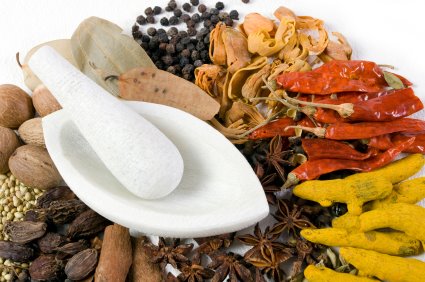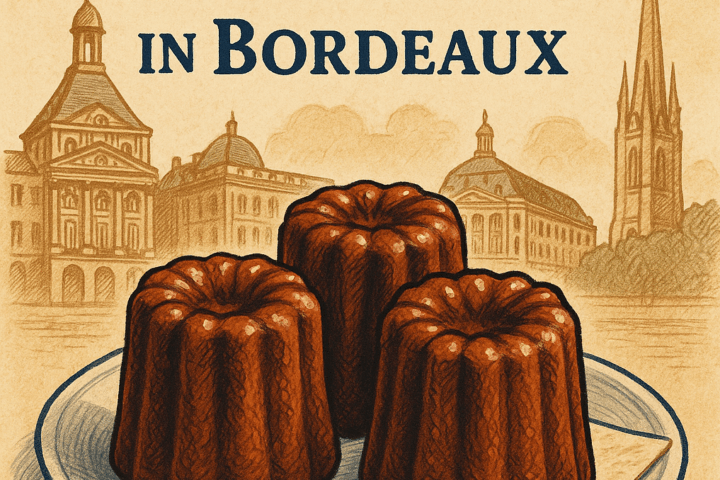Herbs and Spices that do more than just spice up your food
Christmas Spices
By Tarik Dervish
Ayurveda tips
Christmas food includes herbs and spices in abundance but did you know that many culinary spices have therapeutic value too?
We tend to use warming spices in everything at this time of the year with good reason. We spice up cakes, stuff our turkeys and chickens with herbs and even spice up our wine. Spices were once deemed so valuable that they were used as currency for trade but their true value lies in their ability to bring health and balance to our lives.
Cinnamon:
A sweet, warming spice that is dry, light, sharp and penetrating. It increases ojas (our vital juice) and is excellent for Vata problems related to stress and anxiety. It is a useful digestive and is particularly useful for diabetics because it enhances the action of insulin and keeps blood sugar levels low. It is also useful for chesty ailments so an ideal spice to have in your kitchen in the winter.
Nutmeg:
A bitter and pungent seed that is superb at calming Vata dosha. It has a deeply relaxing effect on the body and mind but be mindful that in excess it acts as a hallucinogen. It also stimulates agni and curbs loose bowel and if you're looking at rekindling your love life over Christmas, it can also help in the bedroom.
Cardamom:
A sweet and pungent seed that is really useful for coughs, colds and chest infections. It is warming and invigorating and helps clear negativity and lift your spirits. It is a useful herb for improving agni or digestive power so can also be a good herb for clearing toxins in the new year.
Ginger:
No winter spice list is complete without ginger, the king of digestives. A sweet, pungent herb that is particularly useful for nausea after you've had too many mince pies! It is considered to be a sattvic or energetically pure herb that can enhance energy and immunity. It is proven to have anti-inflammatory properties so is also useful with aches and pains in the joints.
Star Anise:
A gentle aromatic carminative which makes a great herb tea for digestion. It is also used in cough mixtures. It is commonly used in mulled wine.
Clove:
An effective spice for dispelling cold and clearing the lymphatic system. Really useful for coughs and colds and anyone who gets toothaches will know about its powerful analgesic properties. As an aside, also useful in the bedroom but be careful with it; it can easily overstimulate and cause irritation.
There are many other western herbs we commonly use like Rosemary, Mint, Sage and Bay Leaf.
Sage:
Sage is a pungent, bitter herb that can help to reduce excess secretions so is useful for night sweats for example. It's also widely used to manage menopausal symptoms so a must for the stuffing!
Rosemary:
Rosemary on the other hand is a diaphoretic so it helps to sweat out toxins and stimulate your circulation.
Mint:
There are many different types of mint but what they have in common is that they all have a slightly pungent taste and are useful as digestives and nerve relaxants hence their widespread popularity. They can also be mildly diaphoretic so useful for congestion.
Bay leaves:
Bay leaves are pungent and heating and are excellent carminatives and digestives. They are good for coughs and help to clear mucus.
Have a lovely Christmas and New Year and don't forget to spice up your day!
FORMIdea London, 25th December 2018. www.yogawell.co.uk














